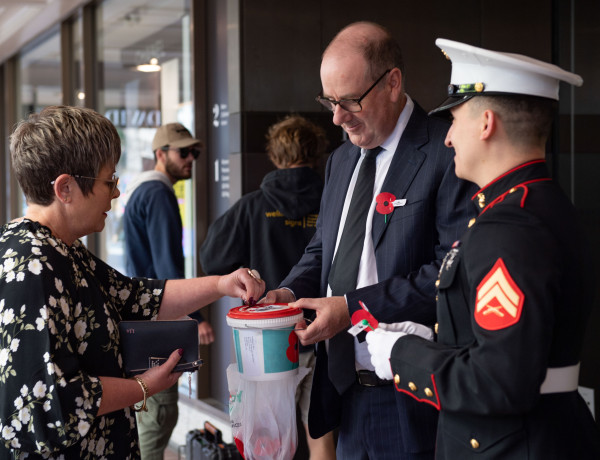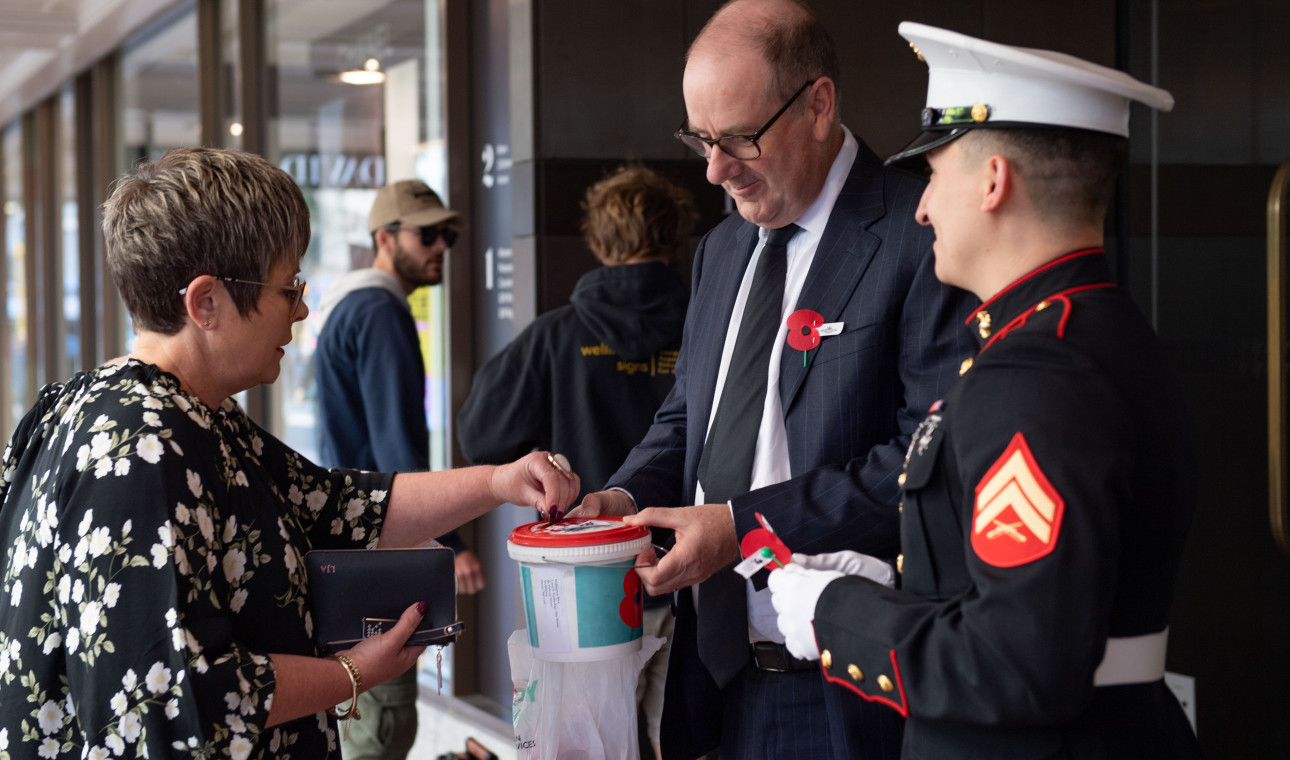Born from the first landings at Gallipoli 106 years ago, Anzac Day is the day we remember our service men and women and their sacrifice.
Many of the 500 memorials, built around the country by communities left bereft after WWI, become the focal point of Anzac Day commemorations as we reflect on those sacrifices.
18 months into my term as Secretary of Defence, Anzac Day, for me, puts into perspective the role of defence in New Zealand today.
It was the aspirations of the WW1 generation that the ‘Great War’ would be, ”The war to end all wars”. Sadly, it was not. New Zealanders have continued to die in conflict, from WWII to Afghanistan.
War is quite possibly the most bewildering and alarming paradox that societies face. It is so inherently tragic and destructive, bringing out the worst in the human condition. But it can also be a time when we see the best in people, where incredible acts of fortitude and heroism are displayed, risking all to counter regimes and ideologies that threaten our way of life.
This paradox is most succinctly described by Hugh White, Emeritus Professor of Strategic Studies at the Australian National University, when he said, ‘War remains one of the most puzzling and unpredictable aspects of human behavior….there are few hard facts to work with, so we must rely on our judgements about things that are at best uncertain, and sometimes quite unknowable.’
This paradox and unpredictability, does not excuse us from what must be our perpetual ambition to prevent war whenever possible. Above all else, that must remain the goal for those of us working in defence and security.
As the principal civilian advisor to the Government on defence matters, I have seen firsthand the broad range of challenging environments that the New Zealand Defence Force (NZDF) continues to operate in. These operations are about protecting New Zealand, securing our interests, being a good international citizen, and helping our friends abroad. The world is in many respects a very different place to what it was when the Anzac spirit was born. But the role of the NZDF in protecting and safeguarding us remains the same.
This past year alone, NZDF personnel have played a critical role in the national response to COVID-19, working tirelessly to secure our borders at managed isolation facilities across New Zealand. They have also provided aerial surveillance of the damage done by Cyclone Harold to Vanuatu and Fiji, and delivered 30 tonnes of aid. In late 2019 they helped fight the Black Summer Bushfires in Australia, and worked with authorities to return the bodies of those tragically killed in the Whakaari White Island eruption to their loved ones. That same year, personnel delivered vaccines and other vital equipment to Samoa to support the measles epidemic response. And today, personnel are deployed in a number of operational theatres, from the Middle East to South Sudan and North Asia.
All of these New Zealanders are deeply committed to serving their country, working in peacekeeping, capacity building, intelligence, logistics, or maritime operations.
Their roles require skills, expertise, discipline, and equipment that the NZDF has at a size and scale unmatched by other organisations. In times of disaster, the NZDF is often called upon to support civilian agencies as they respond.
Indeed, where I work at the Ministry of Defence, civilian advisors work in partnership with Defence Force personnel to scan the horizon for future threats and ensure the NZDF is well-equipped to respond to challenges posed by climate change, global pandemics, natural disasters, resource exploitation, and geo-political tensions.
And in all of this work, I see the Anzac spirit is alive and well. It is in the humility, dedication, professionalism and tenacity of the people who work in defence.
It is in this context that we as a nation remember and reflect on Anzac Day, and give thanks to those that have died in war so that we can live in peace.
Lest we forget.
Andrew Bridgman
Secretary of Defence
Footnote: The Secretary of Defence Andrew Bridgman is the principal civilian advisor to the Government on defence matters. He is also the Chief Executive of the Ministry of Defence, a civilian-led government agency that advises on defence policy and international engagements, and procures major equipment such as ships, vehicles and aircraft.


